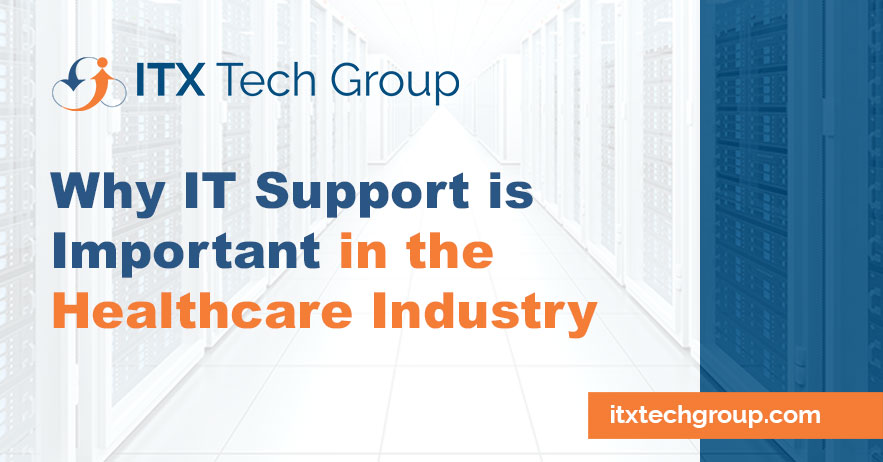In the healthcare industry, where every second counts and patient outcomes are paramount, the efficient functioning of IT systems can be a matter of life and death.
Technology plays a crucial role in modern healthcare, from electronic health records (EHRs) and medical imaging to telemedicine and patient monitoring.
As the healthcare landscape becomes increasingly digitized, IT support becomes the lifeline that ensures uninterrupted and secure access to critical patient data and seamless communication among healthcare professionals.
In this comprehensive article, we explore the vital importance of IT support in the healthcare industry, the challenges it addresses, and the numerous benefits it brings to patient care and overall healthcare efficiency.
Ensuring Data Integrity and Security
The healthcare industry deals with massive volumes of sensitive patient data, including medical records, diagnostic reports, and personal information.
IT support is essential in safeguarding this data from unauthorized access, breaches, or cyberattacks.
Robust cybersecurity measures, including encryption, access controls, and regular system audits, ensure the integrity and privacy of patient information, preventing potential risks of identity theft or medical fraud.
Seamless Electronic Health Records (EHR) Management
EHRs have revolutionized patient care by providing a comprehensive and centralized digital repository of patient information.
IT support ensures the smooth functioning and integration of EHR systems, enabling healthcare providers to access accurate patient histories, medication lists, and treatment plans instantaneously.
This instant access to data enhances clinical decision-making and coordination among healthcare teams, leading to improved patient outcomes.
Enhancing Communication and Collaboration
Effective communication and collaboration among healthcare professionals are vital for delivering timely and efficient patient care.
IT support ensures the seamless operation of communication tools such as secure messaging platforms, video conferencing, and telemedicine applications.
These technologies bridge geographical gaps, allowing specialists to consult remotely and providing access to expert advice during critical moments, such as emergencies or surgeries.
Enabling Telemedicine and Remote Patient Monitoring
Telemedicine and remote patient monitoring have become instrumental in extending healthcare services beyond traditional healthcare facilities.
IT support facilitates the implementation and maintenance of telemedicine platforms, allowing patients to receive medical consultations and follow-ups from the comfort of their homes.
Remote patient monitoring tools track vital signs and health metrics, providing healthcare professionals with real-time data and enabling early intervention in chronic conditions, reducing hospital readmissions and healthcare costs.
Improving Medical Imaging and Diagnostics
Medical imaging plays a pivotal role in diagnosing and monitoring various medical conditions.
IT support ensures that imaging systems, such as Picture Archiving and Communication Systems (PACS), function seamlessly. This enables healthcare providers to access and share radiological images and diagnostic reports efficiently, leading to faster diagnoses and treatment decisions.
Supporting Healthcare Research and Innovations
IT support is crucial in research institutions and academic healthcare settings. Research efforts depend on high-performance computing, data analysis, and secure data storage.
Robust IT infrastructure facilitates medical research, drug development, and innovations that contribute to advancing medical science and improving patient care.
Streamlining Administrative Processes
Beyond clinical care, IT support streamlines administrative processes in healthcare organizations.
From appointment scheduling and billing to patient registration and insurance claims processing, IT systems automate and streamline administrative tasks, reducing administrative burdens for healthcare staff and improving overall operational efficiency.
Adapting to Evolving Healthcare Technologies
As healthcare technologies continue to evolve rapidly, IT support plays a vital role in adopting, integrating, and managing these innovations.
From artificial intelligence (AI) and machine learning applications to wearable health devices and patient portals, IT support ensures that healthcare organizations stay at the forefront of technological advancements, ultimately benefiting patient care.
Conclusion
In the digital age, IT support has become the backbone of the healthcare industry, revolutionizing patient care and optimizing healthcare operations.
From safeguarding patient data and ensuring seamless access to electronic health records to supporting telemedicine, medical imaging, and administrative processes, IT support contributes to improved patient outcomes, cost-effective healthcare delivery, and enhanced collaboration among healthcare professionals.
As healthcare continues to evolve, investing in robust and comprehensive IT support becomes paramount for healthcare organizations seeking to provide world-class patient care while staying at the cutting edge of technological advancements.
Ultimately, the critical importance of IT support in the healthcare industry lies in its ability to save lives, improve patient experiences, and shape the future of healthcare for generations to come.
Connect with us for a free consultation to discuss your business technology needs. We’ve been serving small, medium, and large businesses with their IT support needs all over the United States since 2011, so we’re confident we can provide you with affordable, professional IT solutions for years to come!

